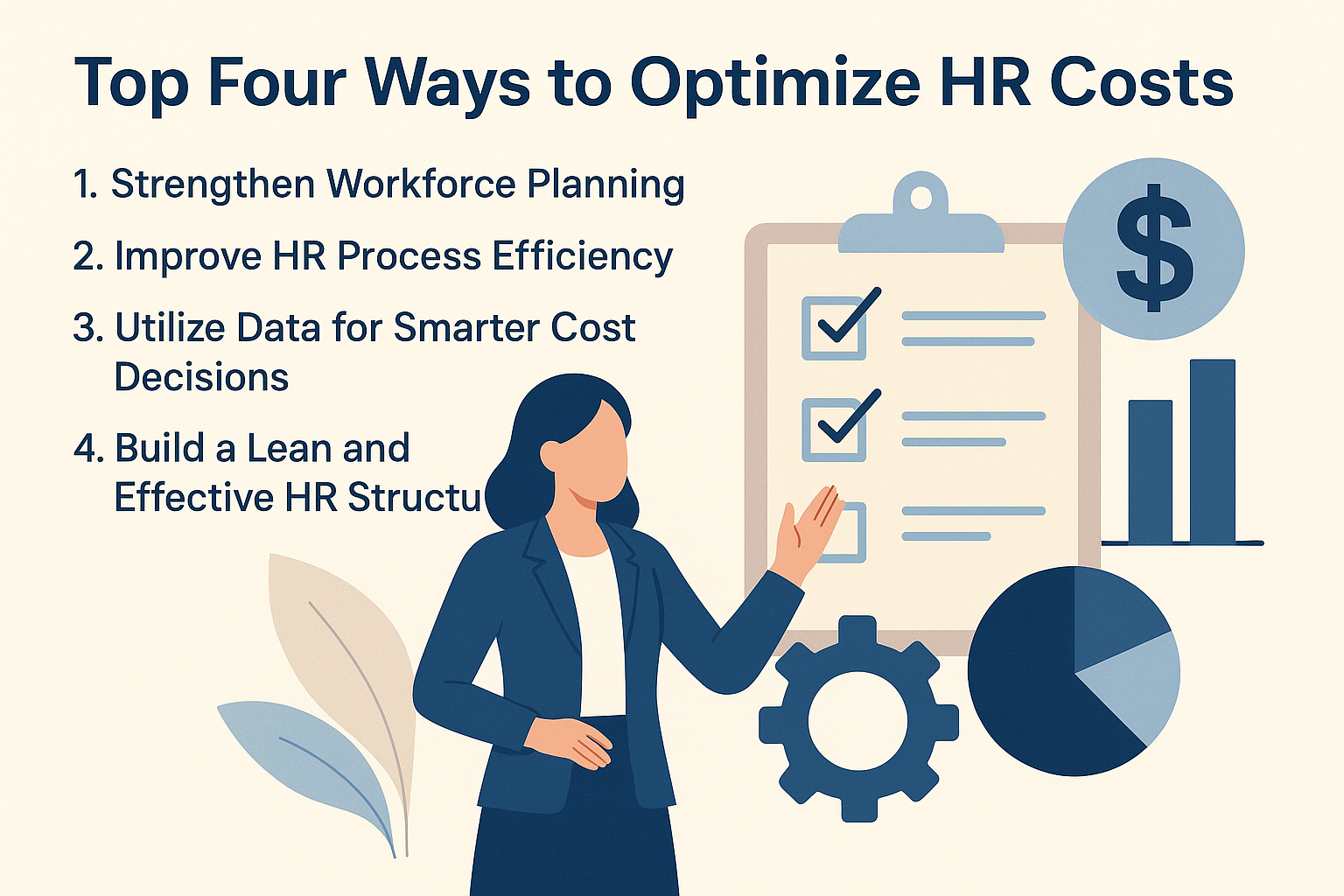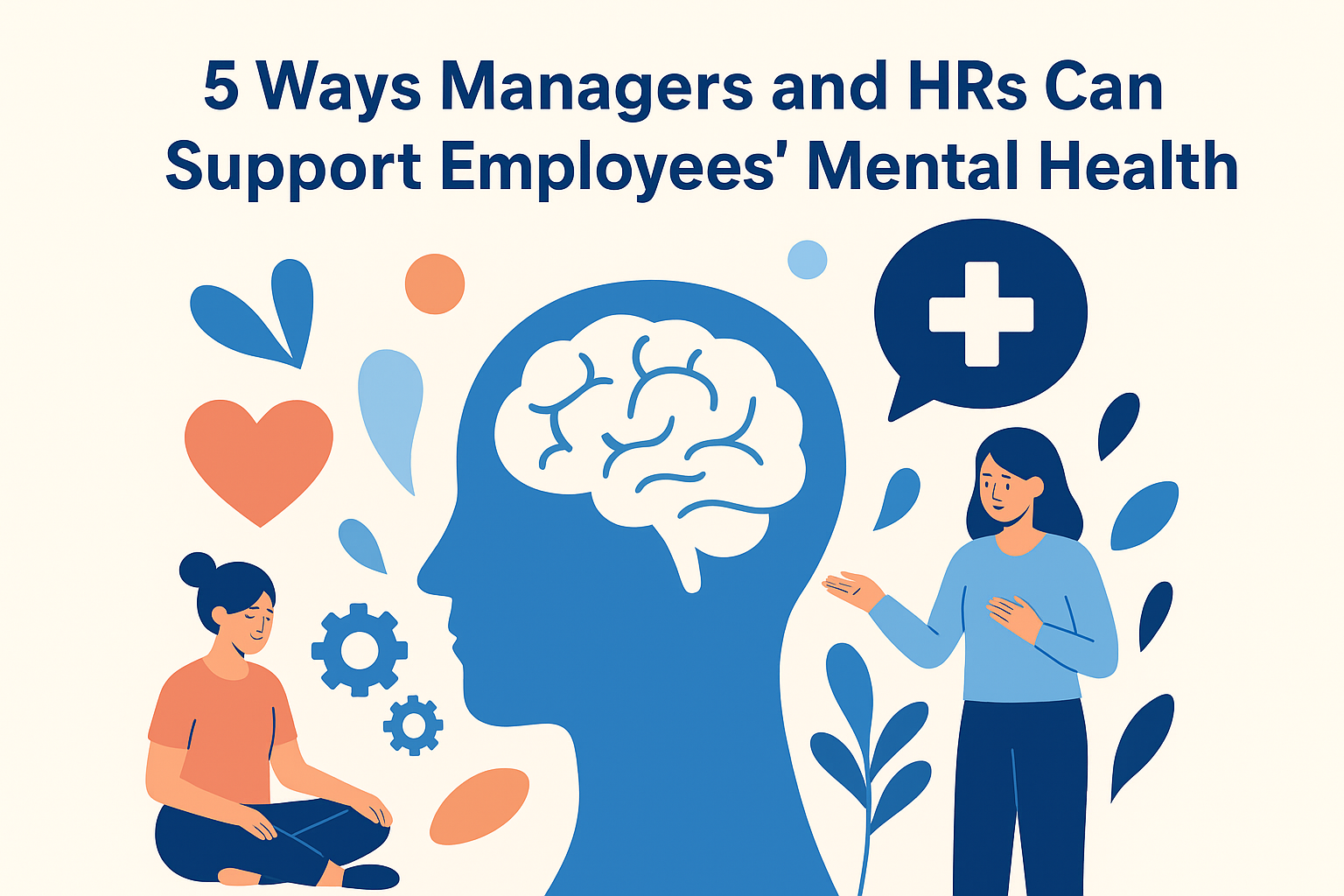Transforming HR Functions in Financial Institutions with High-Impact HR Interventions
Financial institutions operate in a fast-evolving environment shaped by regulatory expectations technological advancements and growing competition. To stay resilient these organizations are redefining how HR functions support business goals. Modern transformation focuses on agility data-based decisions workforce capability and strategic alignment.
Table of Contents
The Evolving Role of HR Functions in Financial Institutions
Driving Workforce Agility Through Strategic HR
Digital HR Enablement and Technology Integration
Building Leadership and Future-Ready Talent
Strengthening Compliance and Risk-Aligned People Practices
Conclusion
1. The Evolving Role of HR Functions in Financial Institutions
HR functions in financial institutions are shifting from traditional administrative operations to strategic business partners. The focus is on talent acquisition cultural development performance management and long-term workforce design that aligns with business growth priorities. The transformation enables HR to support innovation risk management and competitive advantage.
2. Driving Workforce Agility Through Strategic HR
Agility is a core requirement for modern financial institutions. Strategic HR supports workforce agility by enabling flexible work structures capability-based roles and fast reskilling. With rapid industry changes HR ensures employees adapt quickly to new tools regulatory updates and market shifts. A strong talent mobility framework helps organizations place employees where they can create the most value.
3. Digital HR Enablement and Technology Integration
Digital transformation is central to the evolution of HR functions in financial institutions. Technology adoption includes AI-powered recruitment analytics-driven decision making mobile-first employee experience tools and automated compliance workflows. By integrating these tools HR reduces manual load and builds more transparent data-driven systems that improve employee engagement and organizational efficiency.
4. Building Leadership and Future-Ready Talent
As financial institutions expand into digital financial services HR plays a key role in developing future-ready leaders. This includes leadership development programs digital literacy initiatives behavioral training and succession planning. Strong leaders help institutions navigate regulatory complexity customer expectations and technological disruptions.
5. Strengthening Compliance and Risk-Aligned People Practices
Regulatory compliance remains a defining responsibility for financial institutions. HR ensures adherence through robust governance frameworks standardized processes transparent reporting and continuous employee training. Proper documentation and compliance-aligned HR practices reduce institutional risk and enhance operational resilience.
For More Info: https://hrtechcube.com/strategic-hr-transformation-financial-institutions/
Conclusion
HR functions in financial institutions are becoming strategic engines that drive operational excellence talent strength and digital growth. By embracing innovation improving workforce capability and aligning with regulatory needs HR empowers financial organizations to stay competitive and sustainable in an increasingly dynamic environment.
Financial institutions operate in a fast-evolving environment shaped by regulatory expectations technological advancements and growing competition. To stay resilient these organizations are redefining how HR functions support business goals. Modern transformation focuses on agility data-based decisions workforce capability and strategic alignment.
Table of Contents
The Evolving Role of HR Functions in Financial Institutions
Driving Workforce Agility Through Strategic HR
Digital HR Enablement and Technology Integration
Building Leadership and Future-Ready Talent
Strengthening Compliance and Risk-Aligned People Practices
Conclusion
1. The Evolving Role of HR Functions in Financial Institutions
HR functions in financial institutions are shifting from traditional administrative operations to strategic business partners. The focus is on talent acquisition cultural development performance management and long-term workforce design that aligns with business growth priorities. The transformation enables HR to support innovation risk management and competitive advantage.
2. Driving Workforce Agility Through Strategic HR
Agility is a core requirement for modern financial institutions. Strategic HR supports workforce agility by enabling flexible work structures capability-based roles and fast reskilling. With rapid industry changes HR ensures employees adapt quickly to new tools regulatory updates and market shifts. A strong talent mobility framework helps organizations place employees where they can create the most value.
3. Digital HR Enablement and Technology Integration
Digital transformation is central to the evolution of HR functions in financial institutions. Technology adoption includes AI-powered recruitment analytics-driven decision making mobile-first employee experience tools and automated compliance workflows. By integrating these tools HR reduces manual load and builds more transparent data-driven systems that improve employee engagement and organizational efficiency.
4. Building Leadership and Future-Ready Talent
As financial institutions expand into digital financial services HR plays a key role in developing future-ready leaders. This includes leadership development programs digital literacy initiatives behavioral training and succession planning. Strong leaders help institutions navigate regulatory complexity customer expectations and technological disruptions.
5. Strengthening Compliance and Risk-Aligned People Practices
Regulatory compliance remains a defining responsibility for financial institutions. HR ensures adherence through robust governance frameworks standardized processes transparent reporting and continuous employee training. Proper documentation and compliance-aligned HR practices reduce institutional risk and enhance operational resilience.
For More Info: https://hrtechcube.com/strategic-hr-transformation-financial-institutions/
Conclusion
HR functions in financial institutions are becoming strategic engines that drive operational excellence talent strength and digital growth. By embracing innovation improving workforce capability and aligning with regulatory needs HR empowers financial organizations to stay competitive and sustainable in an increasingly dynamic environment.
Transforming HR Functions in Financial Institutions with High-Impact HR Interventions
Financial institutions operate in a fast-evolving environment shaped by regulatory expectations technological advancements and growing competition. To stay resilient these organizations are redefining how HR functions support business goals. Modern transformation focuses on agility data-based decisions workforce capability and strategic alignment.
Table of Contents
The Evolving Role of HR Functions in Financial Institutions
Driving Workforce Agility Through Strategic HR
Digital HR Enablement and Technology Integration
Building Leadership and Future-Ready Talent
Strengthening Compliance and Risk-Aligned People Practices
Conclusion
1. The Evolving Role of HR Functions in Financial Institutions
HR functions in financial institutions are shifting from traditional administrative operations to strategic business partners. The focus is on talent acquisition cultural development performance management and long-term workforce design that aligns with business growth priorities. The transformation enables HR to support innovation risk management and competitive advantage.
2. Driving Workforce Agility Through Strategic HR
Agility is a core requirement for modern financial institutions. Strategic HR supports workforce agility by enabling flexible work structures capability-based roles and fast reskilling. With rapid industry changes HR ensures employees adapt quickly to new tools regulatory updates and market shifts. A strong talent mobility framework helps organizations place employees where they can create the most value.
3. Digital HR Enablement and Technology Integration
Digital transformation is central to the evolution of HR functions in financial institutions. Technology adoption includes AI-powered recruitment analytics-driven decision making mobile-first employee experience tools and automated compliance workflows. By integrating these tools HR reduces manual load and builds more transparent data-driven systems that improve employee engagement and organizational efficiency.
4. Building Leadership and Future-Ready Talent
As financial institutions expand into digital financial services HR plays a key role in developing future-ready leaders. This includes leadership development programs digital literacy initiatives behavioral training and succession planning. Strong leaders help institutions navigate regulatory complexity customer expectations and technological disruptions.
5. Strengthening Compliance and Risk-Aligned People Practices
Regulatory compliance remains a defining responsibility for financial institutions. HR ensures adherence through robust governance frameworks standardized processes transparent reporting and continuous employee training. Proper documentation and compliance-aligned HR practices reduce institutional risk and enhance operational resilience.
For More Info: https://hrtechcube.com/strategic-hr-transformation-financial-institutions/
Conclusion
HR functions in financial institutions are becoming strategic engines that drive operational excellence talent strength and digital growth. By embracing innovation improving workforce capability and aligning with regulatory needs HR empowers financial organizations to stay competitive and sustainable in an increasingly dynamic environment.
0 Comments
0 Shares
20 Views












